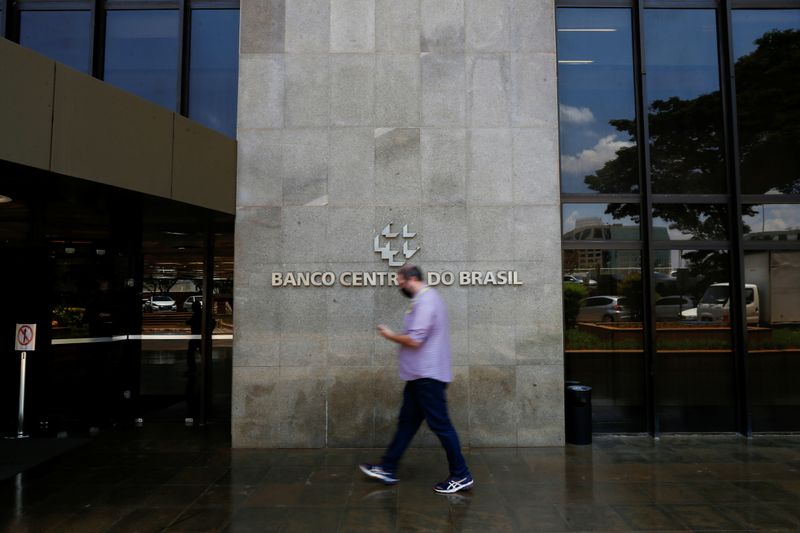BRASILIA (Reuters) – Brazil’s central bank said on Tuesday that there remains a substantial journey ahead to bring inflation back to the official target, stressing it has ignited a wide-ranging discussion on the increasingly challenging external scenario.
In the minutes of the meeting held on October 31-November 1, when the bank cut the benchmark interest rate by 50 basis points to 12.25%, it said that its rate-setting committee was unanimous in its assessment that the increased uncertainty in the global scenario calls for caution.
One of its members stressed that this scenario introduces an asymmetric upward bias in the balance of risks for inflation.
“There has been significant disinflationary progress, in line with what the Committee had anticipated, but there is still a long way to go to anchor expectations and return inflation to the target,” it said.
Last week, policymakers emphasized an “adverse” external backdrop for emerging economies, but still anticipated further cuts of the same size for the next meetings.
The central bank deliberated in the minutes on the various ways in which higher U.S. interest rates could impact the Brazilian economy, highlighting potential effects on interest rates, forward premium in the interest rate curve, external demand, exchange rates, neutral interest rates, and commodity prices.
Following the outbreak of the Israeli-Hamas conflict, the bank noted that the exchange rate and the oil price have had moderate changes so far, despite the severity of such events and “the substantial movement in the prices of international assets”.
“When incorporating the multiple transmission channels into a more uncertain environment, (rate-setting committee) Copom evaluates as appropriate to adopt a more cautious stance in face of the risks involved,” the minutes said.
Policymakers also pointed out higher uncertainty related to Brazil’s fiscal target, which led to an increased risk premium, reaffirming the importance of firmly pursuing such goal.
President Luiz Inacio Lula da Silva recently said his government did not need to erase its primary budget deficit next year, as previously proposed to Congress under new fiscal rules, triggering a negative reaction from local markets amid concerns that the country’s public debt might grow more than expected.
Read the full article here
